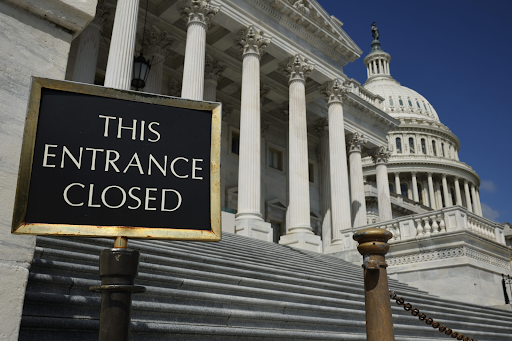Over the past few days, Congress has been disputing the trillion dollar government spending bill which will fund the government through the remainder of the fiscal year.
After passing foundational government spending bills, the bill President Biden just signed marks itself as the last funding bill for the 2024 fiscal year, with both parties voicing their opinions on what initiatives and programs should receive federal funding.
With a heavily divided government between a Republican House of Representatives, Democratic Senate and Democratic executive, tensions flared on Capitol Hill as Congress tried to avoid a government shutdown while battling over the bill’s contents.
After chaotic deliberations, the House passed on the bill on Friday morning, March 22. The bill was then sent to the Senate, where the upper chamber voted early Saturday morning to pass the government funding package, prompting hot debates as pressure from the shutdown deadline hit the senate floor.
“The legislation passed the House on Friday morning by a vote of 268-134.
“Earlier Saturday morning, the Senate voted 74-24 to pass a sweeping $1.2 trillion government funding bill after heated last-minute negotiations caused senators to breach the midnight deadline to avert a shutdown,” according to NBC News.
President Biden quickly signed the funding bill on Saturday after months of squabbles between lawmakers as they struggled to unify on where funding should go and ultimately, who it should go to.
“Biden’s signing of the measure completes a turbulent government funding process during a divided government, featuring a year of haggling, six months of stopgap bills and intense partisan clashes over money and policy along the way,” according to NBC News.
The passing of the government spending bill, however, has brought the elephant in the room back to the forefront of the political scene: aid for Ukraine.
Hardline conservatives are frustrated with House Speaker Mike Johnson after the government spending bill included hundreds of millions in Ukraine aid despite having already sent the country billions of dollars and working presently on a future Ukraine assistance bill.
“The package would provide $300 million for the Ukraine Security Assistance Initiative to aid the nation against Russian aggression. The funding is separate from a larger assistance package for Ukraine that is currently bogged down on Capitol Hill,” according to CNN.
In addition to Ukraine, debates have sparked over large amounts of the bill aiding other American allies like Taiwan and Israel.
“The bill would also increase military funding for Taiwan to $300 million. The funds come from the State Department’s foreign military financing program…The program is typically only used for sovereign nations – a move that angered China, which claims the self-governing island as its own,” according to CNN.
A large chunk of the allies’ aid debate stems around whether the U.S. government is ignoring its own citizens’ financial and economic woes while shoveling out millions of taxpayer dollars to foreign allies.
With the spending bill officially passed and signed by President Biden, Congress is now shifting its focus to the expectedly-chaotic foreign aid discussions, which Speaker Johnson says are not going to take place until after the House’s two-week Easter recess.
“But it means that the lower chamber won’t address funding for Kyiv until mid-April — at the earliest. And Johnson has given few hints as to how he might construct his supplemental aid package, though he maintains it is a priority.
“‘There’s a number of avenues that we’ve been looking at to address that,’ Johnson told reporters this week, adding that funding the U.S. government needed to come first. ‘And having done that now, we’ll turn our attention to it and we won’t delay,’” according to NBC News.
A government for the people or for the money of the people?Read about the contents of the $1.2T spending bill here.











Be First to Comment